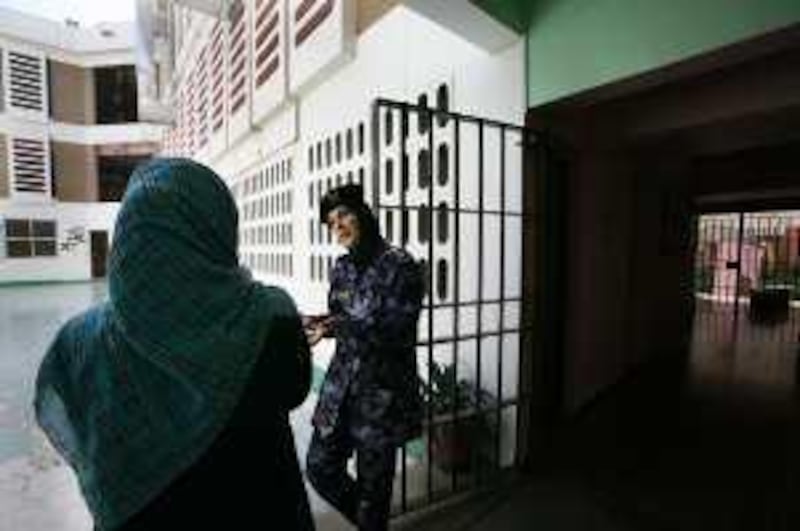ABU DHABI // Women who give birth in prison will soon be able to keep their babies with them throughout their sentence once a new mother-and-child wing opens at the capital's Al Wathba jail. Currently, pregnant inmates give birth at Al Mafraq Hospital, then their children are taken to the Dar Zayed orphanage in Al Ain, where the mothers have visiting rights twice a week.
"Mothers want their kids with them," said Col Mohammed al Zaabi, the deputy manager of the corrections and prisons administration. "Soon, they will be able to be with their babies the whole time." Construction will begin within two months, Col al Zaabi said. An existing unit at the prison will be used to house the mothers until the permanent building is completed. The women's jail currently holds five pregnant prisoners and 13 with children at Dar Zayed.
Meanwhile, the men's jail is undergoing changes of its own, with the expansion of an educational programme under consideration. The Labour Market programme, organised in conjunction with the Higher Colleges of Technology (HCT), allows male nationals to achieve accreditation in various fields, to ease their reintegration into society once they finish their sentences. "The programme aims to provide inmates with the opportunities everyone else enjoys," said Mustapha Karkouti, head of corporate affairs at HCT. "If these people are well equipped, trained and informed, it's easier for them to reintegrate into society."
Launched two years ago, the programme has seen about 30 graduates so far, some of whom the prison management says have become "very successful". "We are teaching them responsibility they can take outside when they leave prison," said Col al Zaabi. "Prisoners are often refused by the rest of the community when they return. We want to minimise this and help them socialise." Eighty prisoners are enrolled in the programme, in which electrical, technical, financial and administrative skills are taught. Any UAE-born male prisoner may enrol. The programme is not available to women. Al Wathba jail is considering expanding the programme to expatriate prisoners and a decision is expected in the next few months.
The move is the latest measure by the UAE to reintegrate prisoners into society. The country is leading the way among GCC states in adopting a more progressive attitude to the treatment of prisoners and reintegrating them in communities. Khadeja al Otaiba, a social worker at the women's prison, said having inmates mingling together rather than divided on different security levels encouraged them to socialise and discouraged the formation of a negative self-image.
"I talk with [the women] as much as possible," she said. "Most of them come to jail and ask themselves why they [committed] the crime. We try to help them." Prison administrators have been in talks with the independent Khalifa Fund to expand the job opportunities for inmates. The fund was set up to help Emirati nationals begin their own businesses by offering financial resources and advice. No decisions or details have been finalised, but Marwan al Otaiba, the fund's marketing officer, said the programme should be launched in the next two months.
The men's prison has 1,346 inmates. The women's has 225. jhume@thenational.ae






